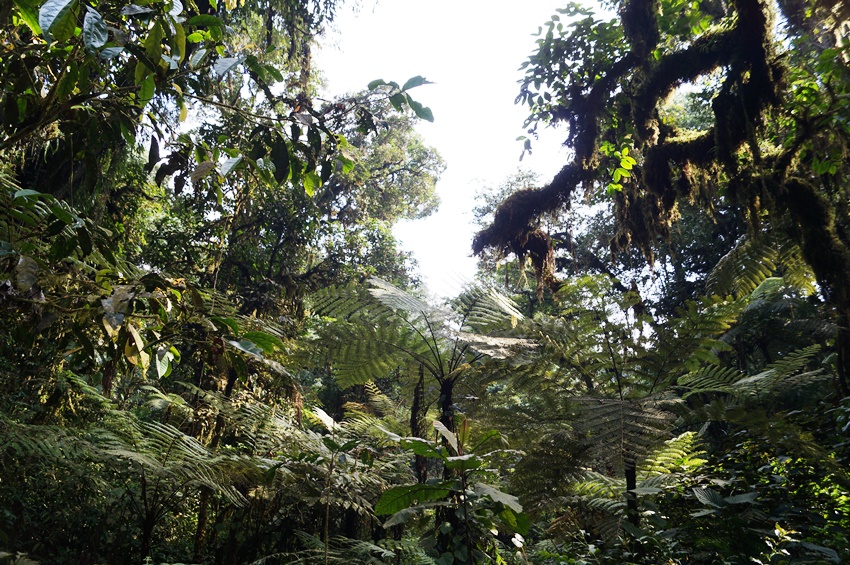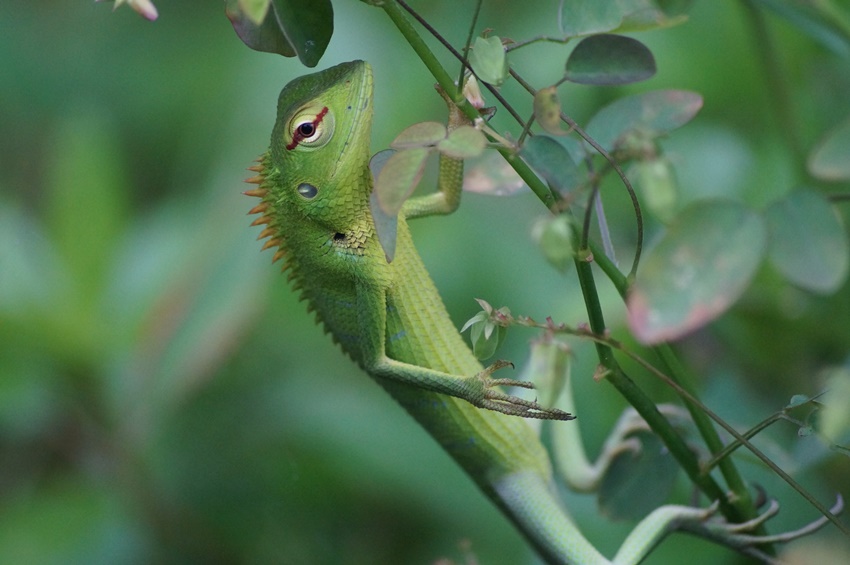IUCN’s work on World Heritage benefits and ecosystem services to help sustainability action
The International Union for Conservation of Nature (IUCN) is undertaking pilot assessments of ecosystem services in two natural World Heritage sites in Uganda and Sri Lanka, as part of its Benefits of Natural World Heritage project. The aim is to test practical tools and methods which can be used to better understand how local communities depend on and benefit from World Heritage sites. Having such tools for collecting and assessing information will help site managers and government agencies translate into action the World Heritage Convention’s policy on sustainable development, adopted in 2015.
Ecosystem services are defined as the outputs of ecosystems – for instance food, freshwater, fertile soils, or regulating processes – from which people derive benefits. These benefits can be nutritive, therapeutic, environmental, economic, cultural and spiritual.
Following the success of its “Benefits of Natural World Heritage” report in 2014, IUCN is currently undertaking a second phase for the project, catering specifically for the needs and interests of World Heritage site managers.
By identifying assessment tools that can be applied in the World Heritage context, the project will provide guidance to site managers and government agencies. It will help them better understand how to develop and undertake ecosystem services assessments in order to maximise some services without impacting on a site’s Outstanding Universal Value. It will also show who benefits from ecosystem services and how, and shed light on how threats affect these services.
A 2016 IUCN survey revealed that, while most World Heritage site managers had a high understanding of ecosystem services, many of them had little experience in assessing them. Nearly all of the respondents showed an interest in learning to do so, with cultural services ranking as the top category of ecosystem services they wanted to assess.
Last July, IUCN held workshops in Bwindi Impenetrable National Park in Uganda and in Sinharaja Forest Reserve in Sri Lanka. Following discussions at the IUCN World Conservation Congress 2016 in Hawai‘i, these pilot sites have been selected for their wide range of ecosystem services, as well as their importance in the local context. The aim is to test tools for assessing ecosystem services specifically in the context of World Heritage, thus also providing an opportunity for building the capacity of experts in those countries.
In Uganda, the park’s director and staff, as well as some 25 representatives of local communities, local NGOs and tourism associations gathered at the workshop. They shared views on what they consider to be on one hand the site’s main benefits and on the other hand the threats it is facing. The objective was to identify which priorities to focus on when assessing the site’s ecosystem services.
In Sri Lanka, the workshop included training on the application of a tool chosen for testing. It was attended by representatives of the Department of Forest Conservation of Sri Lanka, IUCN’s Sri Lanka country office and the Field Ornithology Group of Sri Lanka (a BirdLife partner), as well as other local experts.
As a result of the workshops, participatory assessments of ecosystem services provided by these sites have now begun. The results are expected to be presented in a report next year at UNESCO’s annual World Heritage Committee meeting.
IUCN’s Benefits of Natural World Heritage project is funded by the German Federal Agency for Nature Conservation (BfN) and receives technical support from the UN Environment World Conservation Monitoring Centre (UNEP-WCMC). The site-level assessments in Bwindi Impenetrable National Park in Uganda and in Sinharaja Forest Reserve are being conducted in partnership with BirdLife International and their country partners.
IUCN is the official advisor on nature under the World Heritage Convention.



